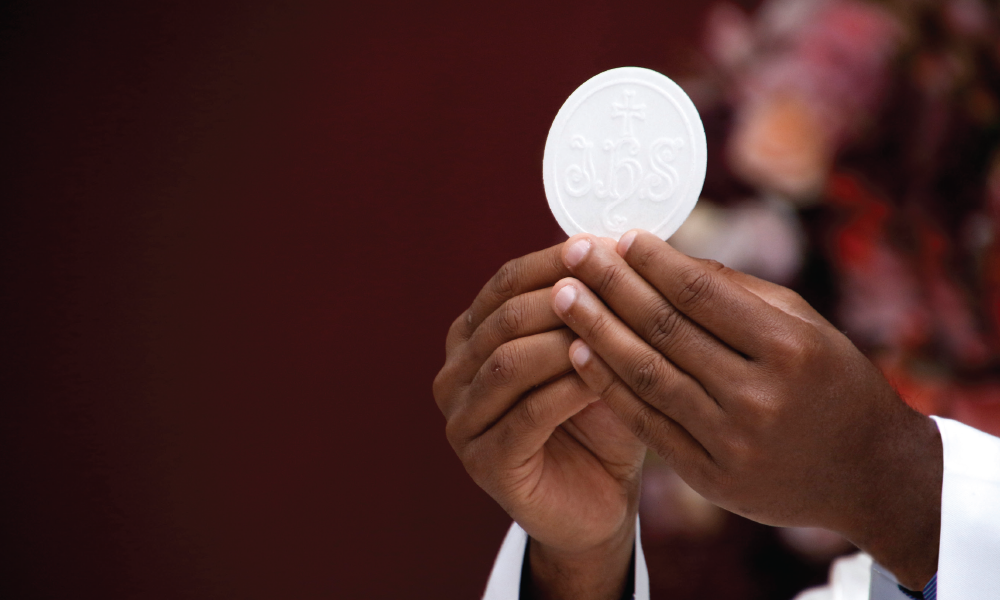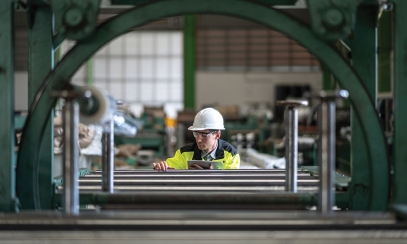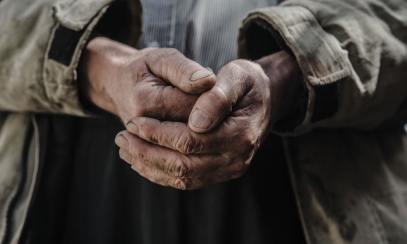
Why Matter Matters in the Eucharistic Liturgy
On June 19, 2022, the United States Conference of Catholic Bishops (USCCB) celebrated the Solemnity of the Most Holy Body and Blood of Christ (Corpus Christi) by launching a three-year long Eucharistic Revival. The revival represents a response to a 2019 Pew Study that indicated only about 30 percent of Catholics believe in the Real Presence. The USCCB hopes the revival will move people to encounter the living Christ in the Eucharist. With this backdrop in mind, let us take a moment to reflect on the role of matter in the sacrament of Holy Eucharist. Why are the bread and wine necessary for the Eucharist?
On June 19, 2022, the United States Conference of Catholic Bishops (USCCB) celebrated the Solemnity of the Most Holy Body and Blood of Christ (Corpus Christi) by launching a three-year long Eucharistic Revival. The revival represents a response to a 2019 Pew Study that indicated only about 30 percent of Catholics believe in the Real Presence. The USCCB hopes the revival will move people to encounter the living Christ in the Eucharist. With this backdrop in mind, let us take a moment to reflect on the role of matter in the sacrament of Holy Eucharist. Why are the bread and wine necessary for the Eucharist?
The basics
The sacraments are the means by which divine life, a share in God’s own life, is dispensed to us. This sharing is a grace, a free and loving gift offered to us by the Father through the Son in the Holy Spirit, who dwells in our souls. Consequently, we see that for a sacrament to be a sacrament, two elements are required: It must be instituted by God and confer an inward grace. However, a sacrament must also consist of a third element … an external sign.
This external sign can be divided into two additional elements, both of which are intrinsic to the sacrament: matter and form. Matter is perceptible to the senses. For example, the matter, or visible reality, of the sacrament of Eucharist is the wheat bread and natural grape wine. Matter is also considered the undetermined element of the sacrament because bread and wine can be used for numerous purposes.
“Whoever eats my flesh and drinks my blood has eternal life, and I will raise him on the last day. For my flesh is true food, and my blood is true drink. Whoever eats my flesh and drinks my blood remains in me and I in him. Just as the living Father sent me and I have life because of the Father, so also the one who feeds on me will have life because of me.” (Jn 6:54-57)
Form consists of the words the minister of the sacrament pronounces. The form of the sacrament of Eucharist are the words of institution: “This is My Body … This is My Blood.” It is the determining element of the sacrament because the words of institution reveal the Church’s intention and determine the meaning of an act.
So, we see that both matter and form are required because God engages both our body and soul (sense and intellect) to affect our salvation and to sanctify the whole person. Further, we can say that because matter is required, all seven sacraments affirm the material world is good.
The Word became flesh…
In the Gospel of John, Jesus proclaimed that he only taught what he heard from the Father and only did what he saw the Father do. (Jn 8:26, 28) In this way, Jesus remained in perfect communion with the Father and, therefore, revealed the mind, heart and love of the Father. He was truly the Word of God. He then commanded his apostles to go and do the same.
This is exactly what the Catholic Church does at every eucharistic liturgy. We use the bread and wine at the Eucharist because Jesus used both at the Last Supper. Further, we echo the very words that Jesus spoke over the bread and wine at the Last Supper. The matter and form of the sacrament come directly from Christ, who, again, said and did only what he heard and saw from the Father. This is how the Catholic Church remains in communion with the divine Trinity and why the bread and wine are essential to the Eucharist.
Five Pillars of the Eucharistic Revival
Foster encounters with Jesus through kerygmatic proclamation and experiences of eucharistic devotion.
- Contemplate and proclaim the doctrine of the real presence of Jesus in the Eucharist through the truth of the Church's teaching, the beauty of the Church's worship and goodness of a life of service.
- Empower grassroots creativity by partnering with movements, apostolates, educational institutions and parishes.
- Reach the smallest unit: parish small groups and families.
- Embrace and learn from the various rich intercultural eucharistic traditions.
…and dwelt among us
In a recent interview, Dr. Timothy O’Malley, the director of education at the McGrath Institute for Church Life and academic director of the Notre Dame Center for Liturgy, noted that God becomes increasingly present to his people throughout the Bible. For example, in Exodus, God hears the cries of Israel and dwells with them “a pillar of cloud by day and of fire by night” as they leave Egypt. Later, God would dwell with them in the tent of meeting, where Moses beheld the face of God. Dr. O’Malley went on to describe the heavenly manna, the Law, the Temple and the tabernacle as forms of God’s dwelling with his people. In each case, the invisible reality was experienced through visible realities.
This theme continues in the New Testament. In the Gospel of John, we learn that the Word became flesh and dwelt among us, or, as Dr. O’Malley points out, pitched his tent among us. In this way, Jesus became this very presence of the invisible reality that is the divine life in the visible reality of a human being.
It is this same divine presence that is given to us in the Eucharist. It is through the visible reality of the bread and wine that we can experience the invisible reality of Christ’s body and blood, the Real Presence, which is given to us out of love for our salvation. Ultimately, the choice of bread and wine in the Eucharist matters precisely because Jesus chose them as the matter through which his body and blood might nourish us body and soul.
Sources:
https://www.eucharisticrevival.org/
https://www.usccb.org/eucharist
https://www.usccb.org/prayer-and-worship/sacraments-and-sacramentals
https://stclare.ca/cms/wp-content/uploads/rcia-Introduction-to-the-Sacraments.pdf
https://www.catholicjournal.us/2016/06/24/matter-form/
Doug Culp is the delegate for administration and the secretary for pastoral life for the Catholic Diocese of Lexington.



